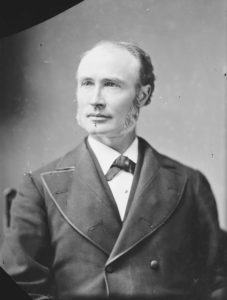

American Christians face unprecedented levels of open hostility today. This is increasingly true at the university level.
Many universities already teach students about what they call “White Privilege” and “Male Privilege” to raise student awareness about the damage professors believe had been done to America by these two groups. But their list of culprits has now expanded. They have added “Christian Privilege” to their societal oppressors who must be confronted and combated.
Today’s level of hostility toward Christianity in America is unprecedented, but such opposition is not. This reality was affirmed by a document we recently added to our historical collection — a post-Civil War governor’s proclamation calling for a day of prayer and fasting.
Of course, issuing public calls to prayer was a common practice of governors and US Presidents. (WallBuilders’ collection includes hundreds of these proclamations.) But the one calling for a day of fasting and prayer in Massachusetts on April 7, 1870 was different. In it, Governor William Claflin specifically mentions the opposition he received over issuing prayer proclamations with explicitly religious language, but he made clear that he would not back down: “The season has returned which our pious ancestors deemed suitable to a public acknowledgment of dependence upon the goodness of God. The request of a few that this custom be discontinued manifestly does not express the feeling of any considerable number of the people of the Commonwealth. And it is certainly desirable that among us there be no diminution of the religious sentiment which originated the usage. If the observance of the day has degenerated from its original idea, we should use it as described by the prophet in Holy Writ, proclaiming ‘an acceptable fast to the Lord.’ It is not to ‘bow the head as a bulrush,’ but to ‘loose the bands of wickedness, to undo the heavy burdens, and to let the oppressed go free’ [Isaiah 58:5-6].
Like Governor Claflin, numerous Founding Fathers a century earlier had similarly rejected the notion that religion had no place in the public sphere. In fact, they believed that American civilization would not survive without the public presence of Christianity.
For example, Charles Carroll (a signer of the Declaration of Independence and a framer of the Bill of Rights) reminded a friend about the importance of Christianity in America: Without morals a republic cannot subsist any length of time; they therefore who are decrying the Christian religion, whose morality is so sublime & pure . . . are undermining the solid foundation of morals, the best security for the duration of free governments.
Jedidiah Morse, one of the most famous American educators, lived through the American War for Independence and wrote one of the first history books about it. He similarly reminded Americans: “In proportion as the genuine effects of Christianity are diminished in any nation . . . . in the same proportion will the people of that nation recede from the blessings of genuine freedom. . . . [A]ll efforts made to destroy the foundations of our Holy Religion ultimately tend to the subversion also of our political freedom and happiness. Whenever the pillars of Christianity shall be overthrown, our present republican forms of government — and all the blessings which flow from them — must fall with them.”
The opposition to the presence of religion in the public square has been present in America for centuries, but has been dismissed by every previous generation. It must also be with this generation as well. Don’t give in to pressure to hide or minimize your faith. Stand up and be counted!
No Comments
Leave a comment Cancel